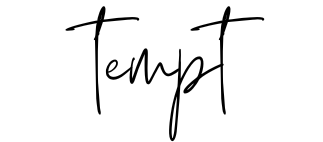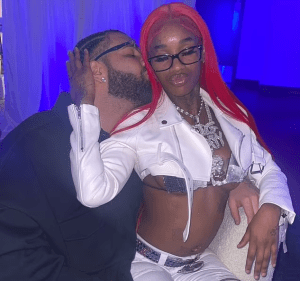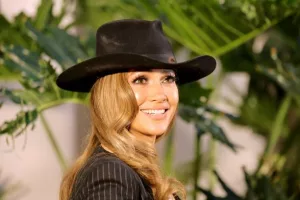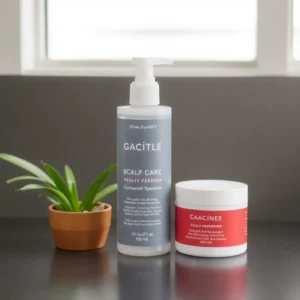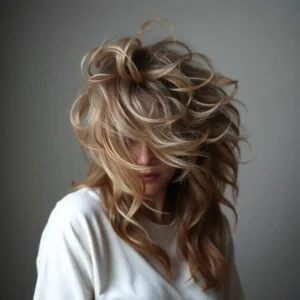Natural hair care has become a hot topic in recent years as more people recognize the importance of using natural ingredients on their hair. Traditional hair care products often contain harsh chemicals and synthetic ingredients that can damage the hair and scalp, leading to dryness, breakage, and even hair loss. On the other hand, natural hair care products use ingredients that are derived from nature, such as plant extracts, oils, and herbs, to nourish and strengthen the hair.
In this ultimate guide to natural hair care, we will cover everything you need to know about taking care of your hair the natural way. From understanding your hair type and texture to developing a natural hair care routine and using natural hair care products, this guide will provide the information and tools you need to achieve healthy, beautiful hair.
We will also discuss the benefits of natural hair care, including how it can help promote hair growth, prevent hair damage, and reduce scalp irritation. Additionally, we will provide tips on how to care for natural hair during different seasons and weather conditions, as well as how to address common hair issues such as dandruff, split ends, and dryness.
Whether you are new to natural hair care or have been using natural hair care products for years, this ultimate guide is for you. By the end of this article, you will have a better understanding of natural hair care and the tools and knowledge you need to achieve healthy, beautiful hair the natural way.
Understanding Natural Hair
Understanding natural hair is the first step towards achieving healthy, beautiful hair the natural way. Natural hair refers to hair that has not been chemically treated, straightened, or relaxed. It is often characterized by its unique texture, curl pattern, and thickness.
One of the most important things to understand about natural hair is that there are different hair types and textures. The most common hair types are straight, wavy, curly, and coily. Straight hair is characterized by its smooth texture and lack of curl pattern, while wavy hair has a slight curl pattern and is often described as having a beachy texture. Curly hair has a defined curl pattern and can range from loose curls to tight coils. Coily hair, also known as kinky hair, has a tight curl pattern and is often the most fragile and prone to breakage.
It’s also important to understand the characteristics of natural hair. Natural hair tends to be drier than other hair types due to its unique structure, which makes it harder for natural oils to travel down the hair shaft. This means that natural hair requires extra moisture and hydration to maintain its health and prevent breakage. Additionally, natural hair is more prone to tangling and shrinkage, which can make it difficult to manage.
By understanding your hair type and texture, as well as the characteristics of natural hair, you can develop a natural hair care routine that works for you. This might include using natural hair care products specifically designed for your hair type, incorporating regular deep conditioning treatments, and using protective styles to minimize breakage and promote hair growth. Ultimately, understanding your natural hair is the key to achieving healthy, beautiful hair that you can feel confident in.
The Benefits of Natural Hair Care
Natural hair care is beneficial for many reasons. One of the main benefits is that it reduces exposure to harsh chemicals and synthetic ingredients that are commonly found in traditional hair care products. Natural hair care products are made from natural ingredients, such as plant extracts, oils, and herbs, which are gentle on the hair and scalp.
In addition to reducing exposure to harsh chemicals, natural hair care can also improve scalp health. Many natural ingredients have anti-inflammatory and anti-microbial properties that can help reduce scalp irritation and dandruff. A healthy scalp is essential for promoting hair growth and thickness, which is another benefit of natural hair care.
Natural hair care products are also known for their ability to improve hair elasticity and strength. Natural oils, such as coconut oil and olive oil, are rich in nutrients that can nourish the hair and help prevent breakage. This can result in hair that is stronger, more flexible, and less prone to damage.
Another benefit of natural hair care is that it can enhance the natural texture and shine of your hair. Natural ingredients can help define curls, add volume, and improve the overall appearance of your hair. By using natural hair care products, you can achieve healthy, beautiful hair that looks and feels great.
Overall, the benefits of natural hair care are numerous. By reducing exposure to harsh chemicals and synthetic ingredients, improving scalp health, promoting hair growth and thickness, improving hair elasticity and strength, and enhancing natural hair texture and shine, natural hair care can help you achieve healthy, beautiful hair that you can feel confident in.
Understanding Natural Hair
Natural hair is hair that has not been chemically treated or altered in any way. It can come in a variety of textures, including kinky, coily, curly, and wavy. Each texture has unique characteristics, such as curl pattern, thickness, and porosity, which can affect how it responds to products and styling.
Understanding your hair type and texture is essential for proper natural hair care and maintenance. This knowledge can help you choose the right products and techniques that will work best for your hair. For example, kinky and coily hair types tend to be drier and require more moisture, while wavy and curly hair types may need more lightweight products that won’t weigh down their hair.
The characteristics of natural hair include its ability to retain moisture, its natural elasticity, and its vulnerability to damage from manipulation and heat styling. It is important to handle natural hair gently and use protective styling techniques to prevent breakage and promote healthy hair growth.
Natural Hair Care Techniques
When it comes to natural hair styling, there are numerous techniques and products available to achieve a variety of looks. Here are some tips for achieving your desired style without compromising the health of your natural hair:
1. Shampooing
- Shampooing is an essential part of natural hair care. Choosing a natural shampoo is crucial because it avoids harsh chemicals that can strip hair of its natural oils. When selecting a shampoo, look for natural ingredients such as aloe vera, tea tree oil, or jojoba oil.
- How often to wash your hair depends on your hair type and texture. Kinky and coily hair types tend to be drier and can go longer without washing, while wavy and curly hair types may need to be washed more frequently. Generally, it is recommended to wash your hair every 7-10 days.
- Pro Tips: Tips for shampooing natural hair include wetting your hair thoroughly, using lukewarm water, and applying shampoo to your scalp and roots only. Use your fingertips to massage your scalp gently, and avoid scrubbing your hair vigorously as it can cause tangling and breakage. Rinse thoroughly with lukewarm water, and follow up with a natural conditioner to add moisture and detangle your hair.
2. Conditioning
- Conditioning helps to restore moisture, detangle, and add shine to hair. It is recommended to condition your hair after every shampoo to keep it healthy and hydrated.
- There are different types of conditioners available in the market, such as leave-in conditioners, rinse-out conditioners, deep conditioners, and co-wash conditioners. Each type of conditioner serves a specific purpose, and it is essential to choose the right type for your hair type and texture.
- Homemade hair conditioners are also a great option for natural hair care. They are easy to make and can be customized according to your hair’s specific needs. Some popular ingredients for homemade conditioners include coconut oil, avocado, honey, and aloe vera.
- Pro tips: Tips for conditioning natural hair include applying conditioner from mid-length to the ends, avoiding the scalp, and detangling your hair with a wide-tooth comb. It is also essential to rinse the conditioner thoroughly with cool water to seal the hair cuticles and promote shine.
3. Moisturizing
- Moisturizing is a part of natural hair care that helps to keep hair hydrated, soft, and manageable. Proper moisturizing can also help prevent breakage and promote healthy hair growth.
- There are several natural ingredients that are great for moisturizing hair, such as coconut oil, shea butter, olive oil, jojoba oil, and aloe vera. These ingredients help to lock in moisture and nourish hair from the inside out.
- DIY moisturizing hair treatments are also an excellent option for natural hair care. Some popular recipes include a honey and olive oil mask, a banana and avocado mask, and a yogurt and honey mask. These treatments can be customized according to your hair’s specific needs and made using simple ingredients in your kitchen.
- Recommendations: It is recommended to moisturize your hair at least once a week, or more frequently if your hair tends to be dry. Applying a leave-in conditioner or natural oil to your hair daily can also help to keep it moisturized throughout the week.
4. Styling
When it comes to natural hair styling, there are numerous techniques and products available to achieve a variety of looks. Here are some tips for achieving your desired style without compromising the health of your natural hair:
- Natural Hair Styling Techniques: From twist-outs and braid-outs to Bantu knots and wash-and-goes, there are many natural hair styling techniques. Experiment with different methods to find the best for your hair type and texture.
- Natural Hair Styling Products: Look for natural hair styling products that are free of harsh chemicals and synthetic ingredients. Some popular options include shea butter, coconut oil, and aloe vera gel. These products can help to define your curls, add shine, and protect your hair from damage.
- Tips for Heat Styling Natural Hair: While heat styling can be damaging to natural hair, there are ways to minimize the risk. Always use a heat protectant product and avoid using the highest heat settings on your styling tools. Consider air-drying your hair or using a diffuser attachment on your blow dryer to reduce heat exposure.
5. Protective Styling
Protective styling is a technique used to protect natural hair from damage caused by environmental factors, styling, and everyday wear and tear. This involves wearing your hair in a low-manipulation style for a period, reducing the need for daily styling and manipulation. Protective styles can range from braids, twists, weaves, and even simple buns.
- The benefits of protective styling are numerous. They help to retain hair length by reducing breakage, tangling, and knotting. They also help to preserve the natural curl pattern of hair and allow for hair growth by minimizing damage caused by everyday manipulation. Additionally, protective styles can be a great way to experiment with new looks without committing to a drastic haircut or chemical treatment.
- When choosing a protective style, it is essential to consider your hair type and the style’s suitability. Some styles may not be suitable for all hair types, so it’s best to consult with a stylist or natural hair care professional. Proper maintenance is also crucial to ensure the longevity of the style and avoid any potential damage to your hair. This includes regular moisturizing and cleansing routines and avoiding styles that are too tight or pulling on the scalp.
Natural Hair Care Tips
Maintaining natural hair can be challenging but with the right techniques and habits, it can be a breeze. Here are some natural hair care tips that can help you maintain healthy and luscious locks:
- Eating a balanced diet: Consuming a diet rich in vitamins, minerals, and nutrients such as omega-3 fatty acids and biotin can help promote hair growth and overall hair health.
- Hydrating regularly: Drinking enough water and applying water-based products can help keep your hair hydrated and prevent dryness and breakage.
- Avoiding excessive heat styling: Frequent use of heat styling tools can cause damage to your hair, leading to dryness and breakage. Instead, opt for protective styling and air-drying your hair whenever possible.
- Reducing stress levels: High-stress levels can lead to hair loss and damage. Incorporating stress-reducing activities such as meditation, yoga, or exercise into your routine can help promote hair health.
- Getting enough sleep: Lack of sleep can lead to hair loss and damage. Ensuring that you get adequate sleep can help keep your hair healthy and vibrant.
Incorporating these natural hair care tips into your routine can help promote healthy and beautiful hair.
Common Mistakes to Avoid in Natural Hair Care
Over-washing hair: Washing your hair too often can strip it of its natural oils and cause dryness, which can lead to breakage and split ends. It’s important to find a balance and not over-wash your hair. Depending on your hair type, you may only need to wash your hair once or twice a week.
Using harsh hair products: Harsh chemicals and synthetic ingredients in hair care products can damage natural hair, making it dry, brittle, and prone to breakage. It’s important to choose natural and gentle hair care products that are free of sulfates, parabens, and other harmful chemicals.
Not protecting hair while sleeping: Sleeping with unprotected hair can cause friction and breakage, especially if you sleep on a cotton pillowcase. Consider using a silk or satin pillowcase or wrapping your hair in a silk or satin scarf or bonnet.
Tight hairstyles: Wearing tight hairstyles like braids or cornrows can pull on the hair and cause damage and breakage. Be mindful of the tension and give your hair a break from tight hairstyles to prevent damage.
Overuse of heat styling tools: Heat styling tools like flat irons and curling irons can damage natural hair, causing it to become dry and brittle. It’s important to limit the use of heat styling tools and use a heat protectant product when using them. Consider using heatless styling techniques like braiding or twisting to achieve your desired style.
Conclusion
Natural hair care is a healthy and effective way to maintain beautiful and strong hair. By understanding your hair type, using natural hair care techniques, following natural hair care tips, and avoiding common mistakes, you can achieve healthy and luscious locks without the use of harsh chemicals and synthetic ingredients.
FAQs
1. Can natural hair care help prevent hair loss?
Natural hair care can help prevent hair loss by promoting scalp health, reducing the use of harsh chemicals, and encouraging healthy hair growth.
2. How often should I wash my natural hair?
The frequency of washing natural hair depends on individual hair type and texture. However, it is generally recommended to wash natural hair every 7-10 days to avoid excessive dryness and breakage.
3. Are natural hair care products expensive?
Natural hair care products can be more expensive than conventional hair care products. However, many natural ingredients can be found in your kitchen, making homemade hair care products a cost-effective option.
4. Can natural hair care work for all hair types?
Yes, natural hair care can work for all hair types. However, it is important to understand your hair type and texture to choose the right natural hair care techniques and products.
5. How long does it take to see results from natural hair care?
The time it takes to see results from natural hair care varies from person to person. However, with consistent use of natural hair care techniques and products, you can expect to see healthier and stronger hair within a few weeks to months.
